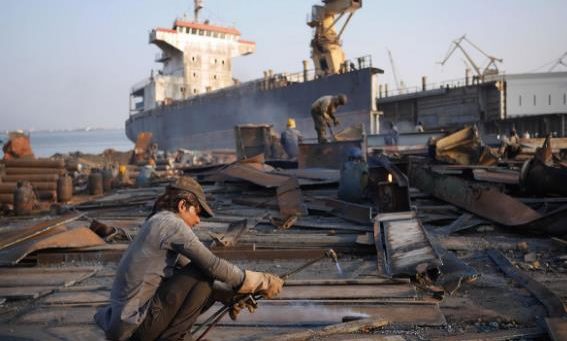Ship Recycling Transparency Initiative online platform goes live

The murky, deadly world of shipbreaking just became a bit brighter with the launch today of a new online platform called the Ship Recycling Transparency Initiative (SRTI) where owners, shippers and financiers can get a picture of who is the best at recycling their ships.
Industry leaders and non-profit the Sustainable Shipping Initiative (SSI) have created the SRTI as a tool for sharing information on ship recycling to drive responsible practice.
The platform comes nine months after a group of shipping companies first announced their collective effort to use the market-drivers that transparency brings to make responsible ship recycling the norm.
“Demanding transparency holds the shipping industry to account, raising the bar for current practice as well as creating fair competition among shipowners,” the group stated in a release today, adding: “With transparency on shipping companies’ ship recycling policies and practices, it becomes possible for the industry’s stakeholders – including shippers, lenders, investors and insurers – to make informed decisions.”
Owners such as Maersk, Norden, Hapag-Lloyd and China Navigation are among the initial backers of the new platform as are a number of financial institutions.
“Knowledge is power, and with knowledge comes responsibility. We believe that through the simpleact of companies being transparent about their approach to ship recycling, we can support improved policy, practice and performance – from the cradle to the grave,” said Andrew Stephens, SSI’s executive director.
“Most ship recycling still happens under unacceptable standards. In the absence of effective regulation the market must act to raise the standards and to enable a level playing field. With the launch today, we encourage all fellow shipowners to sign up to the SRTI and cargo owners and investors to start using it,” commented Søren Toft, A.P. Moeller-Maersk’s COO.
James Woodrow, managing director of Swire-controlled China Navigation, observed: “We find it anomalous that many shipowners provide superintendency in shipbuilding yards to ensure quality control and good health, safety and environmental practices even before the ship is handed over to the owners, and similarly throughout the operational life of the ship, but subsequently at the point of sale most owners wash their hands of all responsibility for these issues and externalise the necessary costs for these.
“We believe that extended product responsibility applies equally to our industry, requiring us to minimise whole of lifecycle environmental impacts and accept some physical and socio-economic responsibility for environmental impacts during the post ownership, disposal, phase at the end of each ship’s economic life.”
